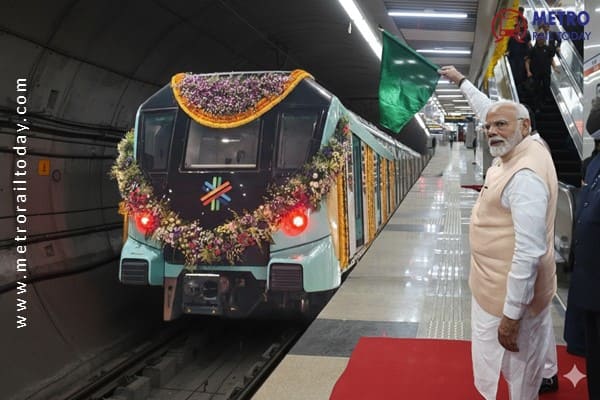 India's Rail & Metro Year-End Review 2025: A Year of Accelerated Execution and Visible Outcomes
India's Rail & Metro Year-End Review 2025: A Year of Accelerated Execution and Visible Outcomes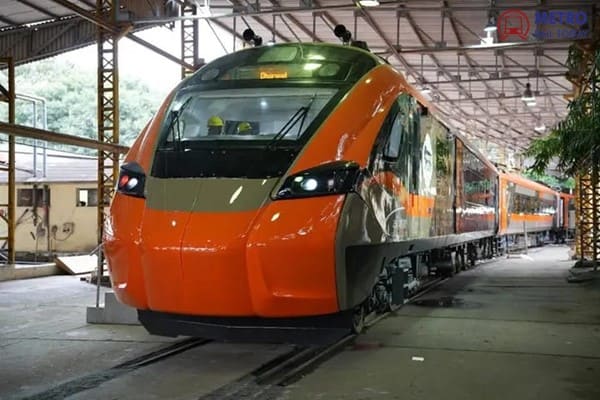 Indian Railways plans to manufacture eight additional sleeper rakes by March 2026
Indian Railways plans to manufacture eight additional sleeper rakes by March 2026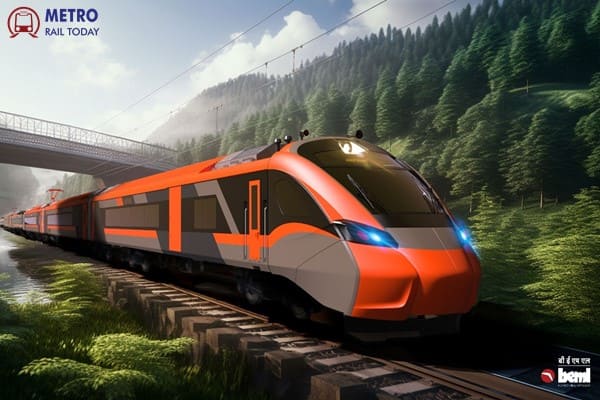 BEML sets timeline for production of high speed trainsets for India's first Bullet Train project
BEML sets timeline for production of high speed trainsets for India's first Bullet Train project Dr. Vinod Shah appointed First Director General of the Chamber of Railway Industries
Dr. Vinod Shah appointed First Director General of the Chamber of Railway Industries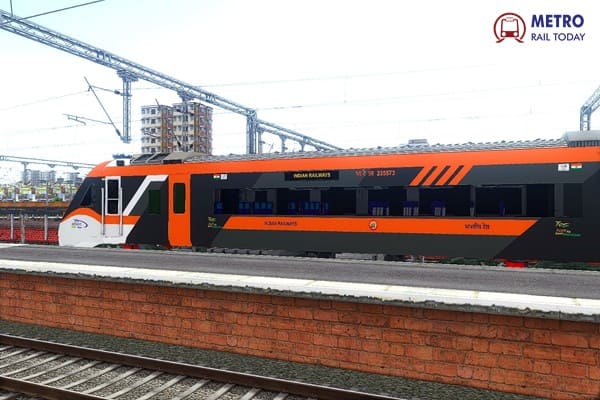 Indian Railways to run Namo Bharat Rapid Rail connecting Indore and Ujjain ahead of Simhastha 2028
Indian Railways to run Namo Bharat Rapid Rail connecting Indore and Ujjain ahead of Simhastha 2028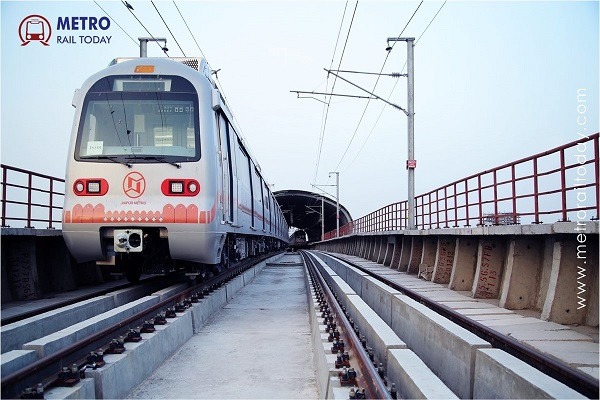 Jaipur Metro Phase 2 to link Airport Terminals, Promise faster Travel and stronger City connectivity
Jaipur Metro Phase 2 to link Airport Terminals, Promise faster Travel and stronger City connectivity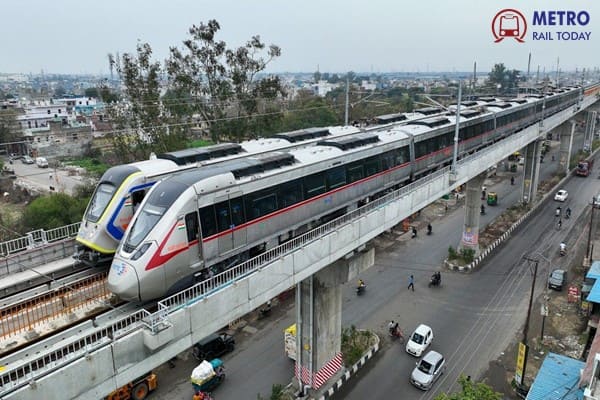 HMRTC proposes shared RRTS and Metro operations on Gurugram–Faridabad Metro corridor
HMRTC proposes shared RRTS and Metro operations on Gurugram–Faridabad Metro corridor India launches Chamber of Railway Industries (Rail Chamber) on Good Governance Day
India launches Chamber of Railway Industries (Rail Chamber) on Good Governance Day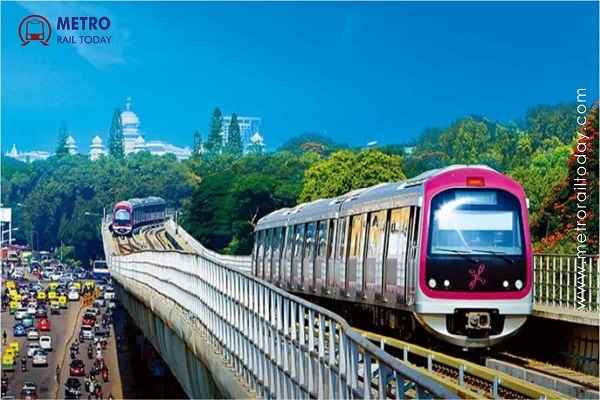 Bangalore Metro network gears up to grow from its current 96 km to 466 km by 2035
Bangalore Metro network gears up to grow from its current 96 km to 466 km by 2035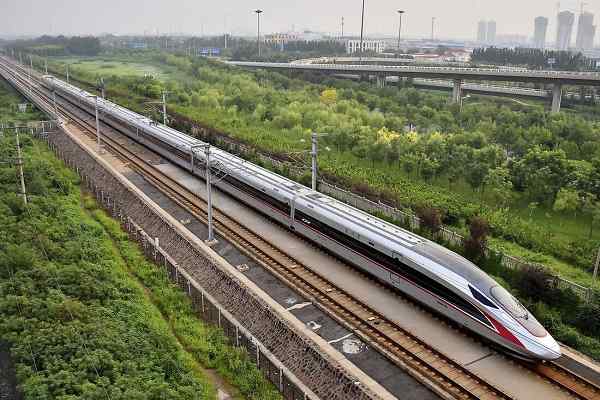 South Korea unveils EMU-370, Set to come World’s Second Fastest High-Speed Train
South Korea unveils EMU-370, Set to come World’s Second Fastest High-Speed Train
DMRC set to launch ₹6,230 crore Delhi - Sonipat Metro Corridor by 2028
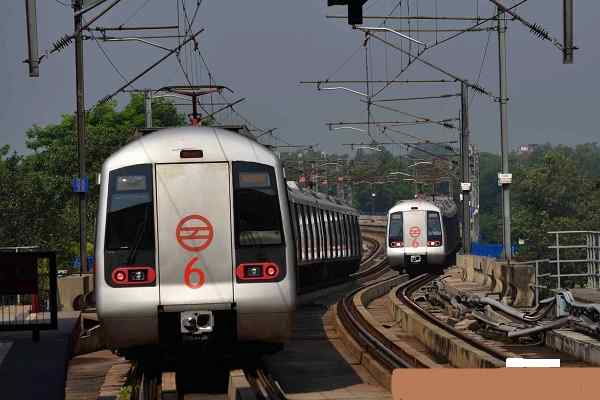
New Delhi, India (Metro Rail Today): The much-anticipated Sonipat to Delhi Metro project is on track for completion by 2028, marking a significant milestone in regional connectivity. As part of Phase 4 of the Delhi Metro expansion, this project aims to provide a seamless commuting experience for thousands of daily travelers between Sonipat and the national capital.
The new metro corridor will span 26.5 kilometers and feature 21 stations, stretching from Rithala in Delhi to Nathupur in Sonipat. Two key metro stations, Kundli and Nathupur, will be constructed in Sonipat to accommodate the growing commuter base and ease traffic congestion along the route.
D.S. Dhesi, Principal Advisor of the Haryana Urban Development Authority (HUDA), recently chaired a review meeting with officials from the Haryana Mass Rapid Transport Corporation (HMRTC), the Delhi Metro Rail Corporation (DMRC), and the District Administration. Discussions focused on key project aspects, including land acquisition, roadwork, and the relocation of electricity poles.
Metro Corridor & Stations
The metro corridor will connect key areas across Delhi and Haryana, improving access to major hubs. The 21 stations along the route include:
-
Rithala
-
Rohini Sector 25, 26, 31, 32, 34, 35, 36
-
Barwala
-
Bawana Industrial Area (Sector 1, 2, 3)
-
Bawana JJ Colony
-
Sanoth, New Sanoth
-
Depot Station
-
Bhorgarh Village
-
Anaaj Mandi Narela
-
Narela DDA Sports Complex
-
Narela, Narela Sector 5
-
Kundli, Nathupur
Cost & Funding
The total estimated cost of the project stands at ₹6,230 crore. Of this, ₹5,685.22 crore has been allocated to the Delhi portion, while ₹545.77 crore is dedicated to the Haryana section. The Haryana state government will contribute 80% of the cost, with the central government covering the remaining 20%.
With approximately 50,000 passengers commuting between Sonipat and Delhi daily, the metro will provide a reliable and efficient transportation option. In addition to easing congestion, the project is expected to generate employment opportunities, boost local businesses, and contribute to the economic growth of Sonipat.
Moreover, the metro is an environmentally friendly solution, reducing road traffic and curbing pollution levels, thus promoting sustainable urban mobility.
Looking Ahead
As construction progresses, stakeholders remain focused on timely execution and addressing challenges to ensure a smooth rollout by 2028. The Sonipat to Delhi Metro project is poised to transform regional connectivity, bringing enhanced convenience to commuters while supporting economic and infrastructural development.
Stay tuned for further updates on the Sonipat to Delhi Metro expansion and its impact on urban transit.




